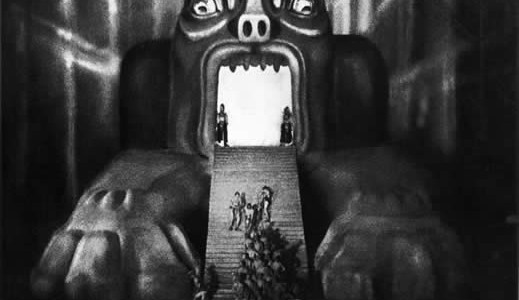How something is perceived is not always how something really is. Movies — and other art forms — intend to make a statement about something, not necessarily to show an accurate or unbiased representation of their subject.
Here are a few great movies that used factories to make a point.
Metropolis
Metropolis was made back in 1927 by German director Fritz Lang. It’s a futuristic dystopian story in which the city of Metropolis is divided into two classes. There’s a wealthy ruling class who lives in luxury and then there’s a class of impoverished workers who toil non-stop below the city in factories to provide power for the city above.
The working conditions in the factories are hazardous to say the least. Workers collapse from exhaustion, there are deaths and explosions, and at one point the machinery turns into a big scary monster with sharp teeth that devours workers by the dozens.
Factories weren’t safe in the 1920’s. Many still made use of child labor, deaths weren’t uncommon, and fires did happen. However, the way Metropolis depicts a factory is not a realistic representation, then or now. It was a caricature designed to bring awareness of the dangerous work conditions in factories to the general public.
Modern Times
This 1936 movie starring Charlie Chaplin focuses on a man trying to survive in an industrialized world. There’s a classic scene where Chaplin’s Little Tramp character is working on a factory production line. There are mishaps and hijinks, and hilarity ensues.
Modern Times and Metropolis have completely different tones. Where Metropolis is almost horrifying and sinister in order to make a statement, Modern Times takes a more tongue in cheek approach to be entertaining, but still makes the point that factories can be dehumanizing.
One of the most memorable scenes of the movie involves an automated salesman and a feeding machine. The “mechanical salesman” is actually a recorded message accompanied by 2 technicians and J. Widdecombe Billows, the inventor for whom the feeding machine is named. The purpose of the machine is to feed workers so they can eat while working.
The salesman’s pitch is, “Don’t stop for lunch, be ahead of your competitor” and he promises that the machine will, “Eliminate the lunch hour, increase your production, and decrease your overhead.”
While Modern Times is an over-the-top comedy meant for entertainment, it touches on a very real perception. At a time when efficiency and uniformity were being presented as a good thing, this movie gently suggested that people might not be as readily automated as machines.
Willy Wonka & the Chocolate Factory
This might be the moost fantastical depiction of a factory in cinema. Chocolate factories are very real, but they don’t usually have a raging chocolate river coursing through fields of lollipops that are tended by little orange men. This film was first made in 1971 with Gene Wilder and remade in 2005 with Johnny Depp as Willy Wonka.
Willy Wonka and the Chocolate Factory is based on a children’s book of the same name by Roald Dahl. It doesn’t have the same heavy-handed agenda as Metropolis, but it’s not as lighthearted as Modern Times either. There’s this eerie sense of mystery surrounding the factory, which is only reinforced by the surreal trial-by-morality administered by an eccentric man in a purple suit. The ultimate moral of the story is that well-behaved children are rewarded with candy factories.
That’s not a statement about factories. The factory isn’t even a metaphor here; it’s a wonderful, magical — albeit scary — environment in which these lessons can be learned.
There are so many more great movies set in factories –from Norma Rae, which is about people more than machines, to Drunken Master II, which selects a factory as a good place for a Jackie Chan martial arts exhibition, to Monsters, in which a factory with an extremely unusual product sets the stage for a kid-friendly quest for self-knowledge — that we could keep listing them for days.
What’s your favorite?
